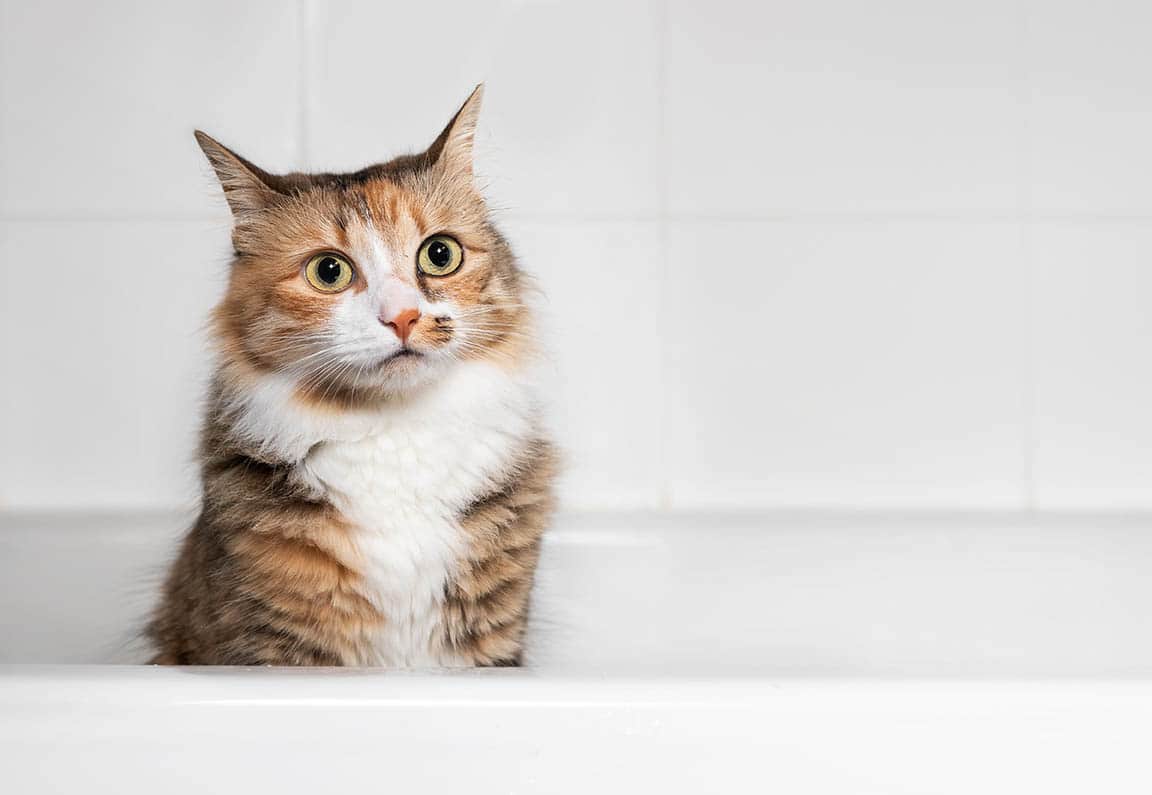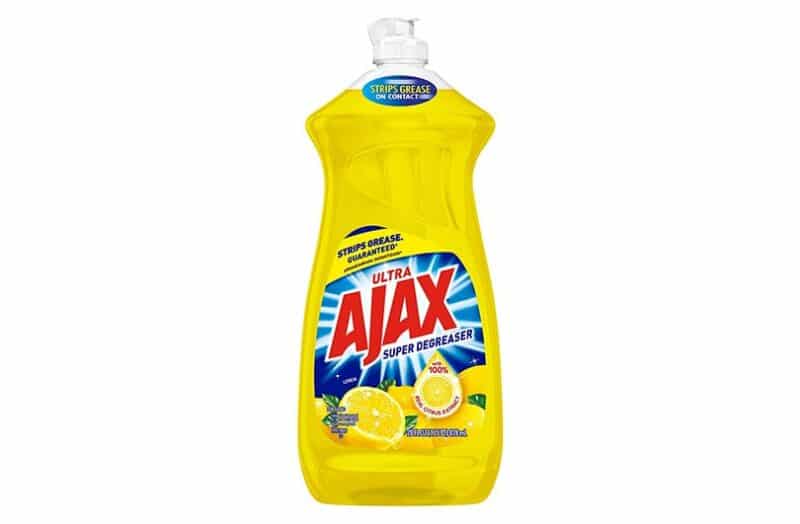Dish soap as a grooming tool is not new to the world of at-home pet grooming. It’s often touted as a quick at-home fix for fleas and a gentle option for regularly bathing your pet. Most of us are familiar with Dawn dish soap being used to remove oil from wildlife involved in oil spills, but most people aren’t familiar with whether other brands and types of dish soap are safe and appropriate for animals.
Ajax is another very popular dish soap brand that is in many homes, so it’s only fair that you might wonder if it’s safe for use on your cat. While the answer is yes, there are still some other important details you need to be aware of.
Is Ajax Dish Soap Safe for Cats?
Regular Ajax dish soap is safe for use on your cat’s body, although you should avoid use around the eyes and face as the soap can cause irritation. It has a neutral pH of around 7.0, which means it’s appropriate for most cats’ skin pH between 6.2–7.2. It’s important to know, though, that dish soap, including Ajax, strips the skin and coat of all the natural oils. This means that it can be extremely drying and irritating to the skin, especially if used regularly. While it can be used in a pinch or to remove oil-based products from your cat’s skin or coat, Ajax dish soap should not replace regular cat-safe shampoo for routine baths.
When using Ajax dish soap on your cat, you should also ensure that you are using regular Ajax. Avoid using Ajax with added scents that may irritate your cat’s skin. You also need to be careful to check the label to make sure your Ajax soap doesn’t have bleach, bleach alternatives, or other harsh chemical additives. These products can damage the skin’s natural barrier and lead to an increased risk of injury and discomfort if it gets into the eyes, mouth, ears, and nose. Breaks in the skin barrier increase the risk of bacterial and fungal infections developing, as well as increasing the potential for injury and irritation.

Are There Better Cleaning Options?
While there are better cleaning options for routine cleaning, most products don’t beat dish soap when it comes to removing oil-based products. For cats reacting to a topical flea and tick medication, for example, dish soap can quickly remove the oily substance from their skin and reduce the skin’s absorption of the product.
Dish soap can also be used to remove the oily substance left behind by a skunk’s spray, making it highly effective against the atrocious smell. It is a common ingredient seen in DIY skunk odor removers.
Cats have thinner and less oily skin than humans do, which is why pet shampoos are formulated specifically for pets. It’s not recommended to use human shampoo on your pets for many of the same reasons as dish soap, as well as not being tested for safety on animals by many companies. When it comes to normal bath time for your cat, it’s best to stick to a cat-safe shampoo that is formulated with cats’ skin and coat needs in mind, as well as the safety of their eyes and mucus membranes.
The best pet shampoos are carefully formulated to clean your pet without causing irritation. Hepper's Colloidal Oatmeal Pet Shampoo does a great job of this by combining soothing ingredients like aloe vera and colloidal oatmeal. It is also pH-balanced and free of irritants like dyes, soaps, sulfates, and phthalates. You and your pet will both enjoy the fresh, clean scent, too!
At Catster, we’ve admired Hepper for many years and decided to take a controlling ownership interest so that we could benefit from the outstanding designs of this cool cat company!
In Conclusion
Ajax dish soap is safe for use on your cat but should be limited to use when removing oily products or on rare occasions. This isn’t because the product is unsafe for your cat, per se, but it can strip the skin and coat of their natural oils, increasing the chances of your cat developing irritations and infections. Cat-safe shampoo is the top pick for bathing your cat, especially for routine baths.
If your cat has specific skin care needs, make sure to talk to your vet before starting a bathing regimen. Most cats don’t require baths regularly, and overbathing can cause more issues than simply having a stinky cat. Talking through your concerns and available options with your vet will help you provide the best care for your cat.














